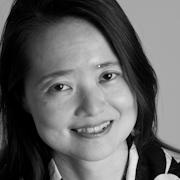Conferences > IIEMCA 2013
Technologies and Techniques
August, 2013: “Technologies and Techniques”, University of Waterloo / Wilfrid Laurier University, Waterloo (ON), Canada
In early August, over 160 faculty, researchers and grad students from 19 countries arrived in Waterloo, Canada for the 11th conference of the IIEMCA. The conference was jointly organized by academics from the University of Waterloo and the host institution, Wilfrid Laurier University. Over four days, delegates explored the theme “Technologies and Techniques” with four exceptional keynote speakers, a host of EM/CA veterans and a vibrant and exciting collection of mid and early career researchers.
Nozomi Ikeya, professor of Sociology at Keio University Japan, opened the conference. Her keynote, “Designing Change in an Organizational Context” examined an ongoing ethnographic project with Japanese rail companies looking for methods to organize information for easy retrieval. Geoff Raymond of UC Santa Barbara took to the big podium for day two’s keynote, “Opening Up Sequence Organization”. Prof. Raymond’s talk contributed to the recent interest amongst ethnos and conversation analysts in ‘epistopics’ and social organization/displays of knowledge and authority. In the penultimate keynote, Prof. Stanley Raffel, University of Edinburg, asked questions of the moral implications of EM/CA research in light of Blum and McHugh’s self-reflective ‘analysis’. Prof. Richard Harper, Microsoft Research Cambridge, closed the conference by asking delegates to consider how they store, retrieve and understand their personal digital information and artifacts.
WLU’s Peter Eglin introduced the conference by discussing Canada’s contribution to EM/CA, and the diversity of scholarship that emerged from the University of British Columbia in the late 1960s and early 70s. While the group, which includes Eglin, James Heap, Dorothy Smith and others, dispersed both geographically and academically, they each remain active researchers and contributors to ethnographic and qualitative research. In a nod to the uniquely Canadian character of EM/CA, Eglin paid tribute to the host of affiliated friends who share our concerns with social scholarship while branching into different aspects of theory and research.
Their leader at UBC, Roy Turner, delivered what many will consider to be the highlight of the conference, an expansive discussion of Ethno’s early days, his experience with David Sudnow as graduate students of Erving Goffman, his interactions with Garfinkel, Sacks, Cicourel, Schegloff and Zimmerman and the progress EM/CA research has made over the six decades since the famous Jury Study at Harvard. Turner asked numerous questions of importance to the continued enterprise of EM/CA research, concluding with a call to envision what comes next in light of repeated findings of social order at every turn?
The feedback we have received from delegates indicates the conference was an overwhelming success, to which we owe a debt of gratitude to the excellent quality and convivial spirit of our participants. We were witness to four days of the ‘state-of-the-art’ in EM/CA research, and we are happy to report that the organization is as healthy and vibrant as it has been in years. Always concerned with authenticity, many delegates asked the ubiquitous question ‘… but is it ethno?’, and we can conclude that this conference indeed was an exciting and dramatic display of contributions to EM/CA. We look forward to seeing everyone again in two years time… with announcements about that conference to be made soon!
Keynote speakers
Richard Harper, Microsoft Research Cambridge
 Dr. Harper is Principal Researcher at Microsoft Research in Cambridge and co-manages the Socio-Digital Systems group. He 2011 he was elected a Fellow of the Royal Society of Arts. He became a Fellow of the IET in 2010.
Dr. Harper is Principal Researcher at Microsoft Research in Cambridge and co-manages the Socio-Digital Systems group. He 2011 he was elected a Fellow of the Royal Society of Arts. He became a Fellow of the IET in 2010.
Dr. Harper is concerned with how to design for ‘being human’ in an age when human-as-machine type metaphors, deriving from Turing and others, tend to dominate thinking in the area. Trained as a sociologist but with a strong passion for the philosophical inquiries of Wittgenstein and Rorty as well as ethnomethodological sociology, he has published over 130 papers. His 10th book, Texture: Human expression in the age of communications overload (MIT Press) has been awarded the Society of Internet Researcher’s ‘Book of the Year (2011)’. Amongst his prior books is the IEEE award winning The Myth of the Paperless Office (MIT Press,2002), co-authored with Abi Sellen. His most recent edited collected is The Connected Home: the future of domestic life (Springer, Dec, 2011).
His work is not only theoretical or sociological, but also includes the design of real and functioning systems, for work and for home settings, for mobile devices and for social networking sites. Numerous patents have derived from his work. Particular foci have been new forms of messaging, as illustrated by Glancephones and Wayve Devices, new forms of control devices for cloud-based interaction such as the Cloud Mouse; and new forms of file types, reflecting social networking social practices (see, for example, What is a file? technical report).
Prior to joining MSR, Richard helped lead various technology innovation and knowledge transfer companies, while in 2000 he was appointed the UK’s first Professor of Socio-Digital Systems, at the University of Surrey, England. It was here he also set up the Digital World Research Centre. Prior to this he was a researcher at Xerox PARC’s fifth lab, EuroPARC, in Cambridge. He completed his Phd at Manchester in 1989. He lives in Cambridge with his wife and three troublesome but occasionally delightful children.
Nozomi Ikeya, Professor, Keio University, Japan
 Dr. Ikeya aims to capture “practical management of knowledge” — how knowledge is shared, acquired, transferred, and used as part of activities. She emphasizes the importance of informing practitioners of her findings, and has co-designed activities with them based on findings so that they can work more collaboratively to better manage knowledge.
Dr. Ikeya aims to capture “practical management of knowledge” — how knowledge is shared, acquired, transferred, and used as part of activities. She emphasizes the importance of informing practitioners of her findings, and has co-designed activities with them based on findings so that they can work more collaboratively to better manage knowledge.
With these goals in mind, Dr. Ikeya studies “knowledge in action” in social settings from an ethnomethodological perspective. She has conducted ethnographic studies of work practice in various professional work settings, including: emergency medical practice at hospitals and emergency call centers; library services, particularly service design practices and reference service interactions; system engineers’ project management and discovery; and hardware designers’ work practices.
Dr. Ikeya was recently Senior Researcher at PARC, and was also Associate Professor of the Sociology Department at Toyo University in Japan. Dr. Ikeya received her Ph.D. in Sociology from the University of Manchester in the United Kingdom.
Stanley Raffel, University of Edinburgh
 Prof. Raffel studied sociology at Columbia University with Alan Blum and Peter McHugh. He received his Ph. D. from Edinburgh University where he taught for many years. He has also been a visiting professor at York University in Toronto. In addition to many articles engaging with issues in contemporary social theory, He has authored two books, Matters of Fact and Habermas, Lyotard, and the Concept of Justice. He is also co-author, with Peter McHugh, Daniel Foss, and Alan Blum of On the Beginning of Social Inquiry.
Prof. Raffel studied sociology at Columbia University with Alan Blum and Peter McHugh. He received his Ph. D. from Edinburgh University where he taught for many years. He has also been a visiting professor at York University in Toronto. In addition to many articles engaging with issues in contemporary social theory, He has authored two books, Matters of Fact and Habermas, Lyotard, and the Concept of Justice. He is also co-author, with Peter McHugh, Daniel Foss, and Alan Blum of On the Beginning of Social Inquiry.Geoffrey Raymond, University of California Santa Barbara
 Geoffrey Raymond is an Associate Professor of Sociology at the University of California, Santa Barbara. His research interests include conversation analysis, the role of talk-in-interaction in the organization of institutions, and qualitative research methods. His research has appeared in the American Sociological Review, Social Psychology Quarterly, and Language in Society, among other places. He is co-editor, with Paul Drew and Darin Weinberg of Talk and Interaction in Social Research Methods.
Geoffrey Raymond is an Associate Professor of Sociology at the University of California, Santa Barbara. His research interests include conversation analysis, the role of talk-in-interaction in the organization of institutions, and qualitative research methods. His research has appeared in the American Sociological Review, Social Psychology Quarterly, and Language in Society, among other places. He is co-editor, with Paul Drew and Darin Weinberg of Talk and Interaction in Social Research Methods.
